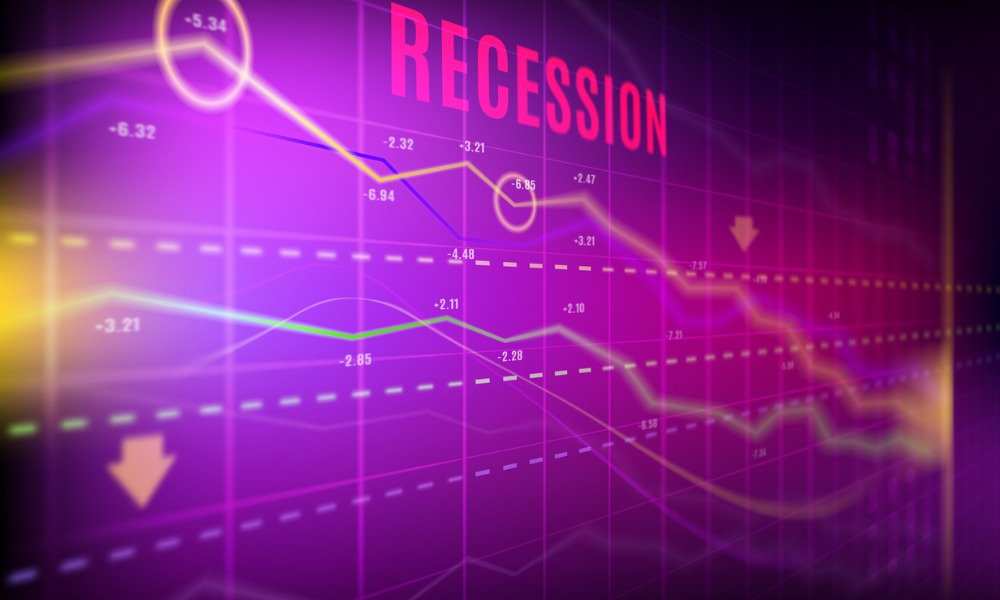Delayed impact of rate increases mainly stems from excess consumer purchasing power

The cumulative impact of interest rate hikes in North American economies might well end up in a widespread recession sooner or later, according to the head of a major Canadian asset management firm.
John Zechner, chairman and founder of J. Zechner Associates, said in an interview with BNN Bloomberg that historically, an economic slowdown follows whenever short-term debt posts a greater yield than longer term bonds.
Zechner said that this exact phenomenon can be observed in both North American economies at present.
“Every single time you’ve had an inversion of the yield curve, you’ve been in a recession afterwards,” Zechner said. “Why would this suddenly be different this time around?”
The seemingly delayed economic impact of interest rate hikes mainly stems from pandemic-era excess savings and government fiscal support – and these reserves are likely to run their course soon.
“We’re heading down into this period of sort of low growth, or no growth, that will in retrospect be defined as a recession,” Zechner said. “I don’t see how we can possibly avoid going into a recession.”
On the other hand, this same excess consumer purchasing power, coupled with elevated spending and labour market resilience, could help Canada avert the worst-case scenario this year, BMO said recently.
“Tighter central bank policy reinforces our view that the housing market is unlikely to see a V-shaped recovery this year,” BMO said. “Sales and prices are expected to remain flat to modestly higher, before rate cuts set the stage for a stronger upturn next year.”
Still, “if the Bank of Canada is forced to push rates well above 5% to restore price stability, the correction in home prices could resume,” BMO warned.



